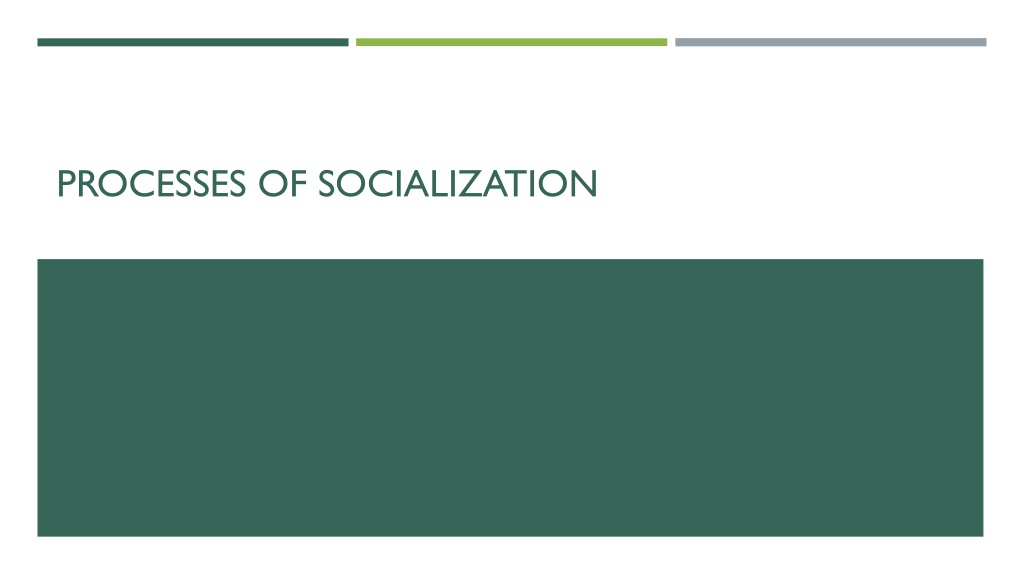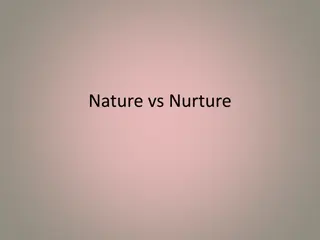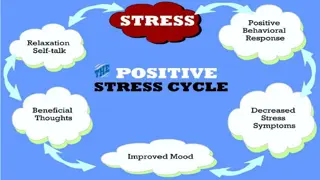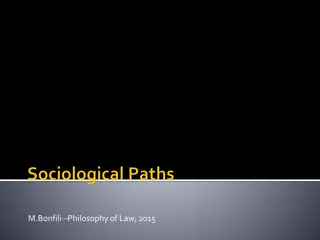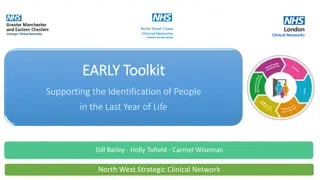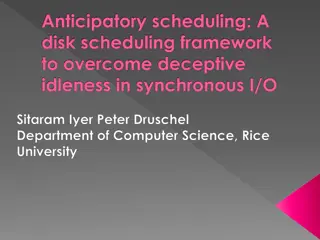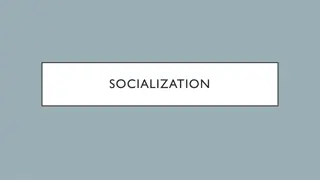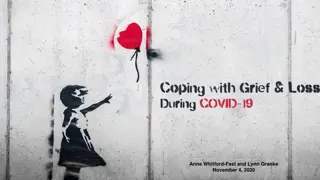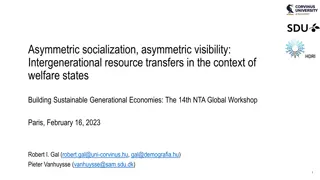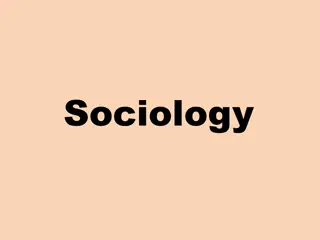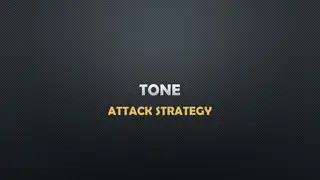Understanding Socialization Processes: Desocialization, Resocialization, Anticipatory Socialization
Explore the processes of socialization including desocialization, resocialization, and anticipatory socialization. Learn about the concepts, examples, and effects of these societal mechanisms on individuals. Delve into how these processes shape identity, behavior, and adaptation to new norms and values.
Download Presentation

Please find below an Image/Link to download the presentation.
The content on the website is provided AS IS for your information and personal use only. It may not be sold, licensed, or shared on other websites without obtaining consent from the author. Download presentation by click this link. If you encounter any issues during the download, it is possible that the publisher has removed the file from their server.
E N D
Presentation Transcript
Norms, values, attitudes, and behaviors = NVAB This will save time on writing definitions for our terms today.
DESOCIALIZATION Total Institutions- places where people are separated from the rest of society and controlled by officials in charge. Examples include mental hospitals, cults, and prisons The purpose of this is to permanently change the residents. Desocialization- the process of giving up old norms, values, attitudes, and behaviors. This is accomplished in many ways including taking away personal possessions and replacing them with standard issue items. Also no long hair or clothing items that can make you look different from others. Some total institutions may even not call you by your name.
RESOCIALIZATION Resocialization- the process of adopting NEW norms, values, attitudes and behaviors Can only occur AFTER the self concept has been broken down. This is done using a system of rewards and punishments. Take on the new identity and you can get extra food, special responsibilities, or periods of privacy. Punishments involve shaming, loss of privileges, physical punishment and isolation. In a much less extreme form, desocialization and resocialization occur as a child becomes a teen, when young adults begin careers, and as elderly move into retirement.
ANTICIPATORY SOCIALIZATION Anticipatory socialization- the voluntary process of preparing to accept new norms, values, attitudes, and behavior Does not usually occur in prisons or mental hospitals because it involves Voluntary Change. This occurs when people are moving from one stage in their lives to another. Examples could be an 8thgrader getting ready for high school; a senior in HS getting ready for college; a college senior getting ready for the adult world Reference Group- the group that you are anticipating joining
QUESTIONS 1. Identify the following as Desocialization (D), Resocialization (R), or Anticipatory Socialization (A): A. First year students acquire a new identity during their freshman year at a military Academy B. Prison personnel deliberately attempt to destroy the self concepts of inmates C. High school students identify with college students 2. Which of the following IS NOT an example of a reference group? A. Rock star subculture B. US Military Academy C. Terrorists D. Mass Media 3. Which group do you feel is the most influential in the present stage of your socialization family, peers, school, or media? Why?
MAKING PREDICTIONS A growing concern about computers is that some people and groups of people are being left behind because they don t have equal access to technology. How might this become a problem for your generation?
EVALUATING INFORMATION Our perceptions of the ideal body types seem to be largely a product of media socialization. Girls feel the need to have an hourglass shape and boys tend to measure how muscular they are. How has TV, magazines, music, and videogames reinforced these images. Give examples from your experience of how the media has socialized Americans to admire certain body types.
ANALYZING INFORMATION Your daily life includes many social networks, or groups that regularly contribute to your socialization. They include family, friends, teachers, people at work, teammates, and so forth. Identify one of these groups, and imagine your day if you suddenly lost contact with those people. What support would you be missing? What key elements are provided by this particular social network?
MAKING GENERALIZATIONS Total institutions, such as prisons, presume that desocialization and resocialization occur, since one of their goals is to make prisoners law abiding. Yet more than half of the inmates released in the US return to prison. If desocialization and resocialization really do take place, why is the percentage of prisoners who return to prison so high? Propose a theory for what might be happening.
